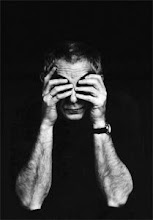'From Iran, a separation', does what a great documentary is meant to do, it creates debate and more questions, rather than tell you what to think.
'The separation' stands as a pivotal film in Iran's cinema history, one of the reasons being it's the first Iranian film to win an oscar. For some people in the world, this is the only Iranian film they've ever seen or it was the first of many more.
In 2007, I witnessed an audience stand and cheer for Roman Polanski in response for a lifetime achievement award in a venue within his own home country Poland. I had never seen such applause, cheers and admiration for one person before, it must have lasted for at least ten minutes before he was finally able to give his thank you speech.
I asked some native friends afterwards about this reception, myself being a Kieslowski fanatic, one of the most important Filmmakers of my personal and working life. I was told it was because Polanski is a polish filmmaker who has become a global success outside of Poland. Kieslowski achieved this shortly before unfortunate death with his final three films.
For Polanski, this wasn't the case as shown with his first brilliant film, 'Knife in the water,' 1962, which shunned him from Polish audiences because it was a film not about Polish politics which is why the rest of the world embraced it. It's a highly intelligent and terrific film with several layers and deep thematic tissue.
'The Pianist', again a great film but why didn't one of the biggest Filmmakers in the world record the film in its native language spoken within the times? Ang Lee is an example who became a global success after a series of English language films but despite this, he still recorded 'Crouching tiger, hidden dragon' in Mandarin. A true example of integrity and respect towards the truth of a story and it's characters. Why didn't Polanski cast a Polish actor in the film? Adian Brody was great but he's not Polish nor has he any Polish roots! Instead, the fabulous Polish actor Zbigniew Zamachowski has a comedic cameo that lasts for about a minute.
I wonder though, perhaps 'A separation' did for Iran what Polanski did for Poland? An artist represents their country with their work to the world.
For me, there's a world of Iranian cinema that exists before 'A separation' going back several decades, most of which is some of the most important cinema of my life. A recent script I wrote, wouldn't exist in the form it stands now if it wasn't for 'the white balloon', 'children of heaven', 'taste of cherry', moment of innocence', 'colours of paradise', to name a handful of masterpieces. So many films which mean so much to me that I can't actually put it into words.
Does 'A separation bring a sense peace for Iran, has it changed people's perceptions of Iran more, informing them that they have a rich culture and history or was all that destroyed with the 2012 film 'Argo?' A film which I have way too much to say about so I'll leave it up to this great man to tell you everything I want to say and more about the truth of Iran
http://bellacaledonia.org.uk/2012/11/15/mark-cousins-on-argo-iran-and-formulaic-thinking/
Asghar Farhadi, I believe wanted to tell an authentic modern urban story that's still close to Iran and indeed to human civilisation. To appeal to worldwide audiences, you must appeal to your own first and I think he achieved this.
Amongst Iran and the people there is debate. Farhadi's acceptance speech at the Oscars is one that is either seen as beautiful and poignant or political and clever in appealing to Western audiences.
'From Iran, a separation' shows the nights of the Oscars being watched in living rooms around Iran as if it's a grand sporting event. It meant a lot to the people of Iran that their country is represented and shown more for its actually reality rather than what's plastered around the news. That they are peaceful, that they have a rich culture, that they have dreams, are inviting, hospitable, kind and welcoming.
It all makes sense that they would want this, regardless of whether they think 'A separation' is authentic or indeed the right representation. They want the truth about their country and their people to be screened. They too have domestic problems amongst family relations, marriage, trust and love.
They are human after all.
To end this, a celebration of news.
Fribourg International Film Festival (FIFF) and Edinburgh International Film Festival (EIFF) are pleased to announce their collaboration on an ambitious retrospective called The History of Iranian Cinema by Its Creators.
It's an important event to celebrate a country's cinema history which is simply unique and one which I love, adore and admire.
http://cinehouseuk.blogspot.co.uk/2013/12/edinburgh-and-fribourg-film-festivals.html?m=1



